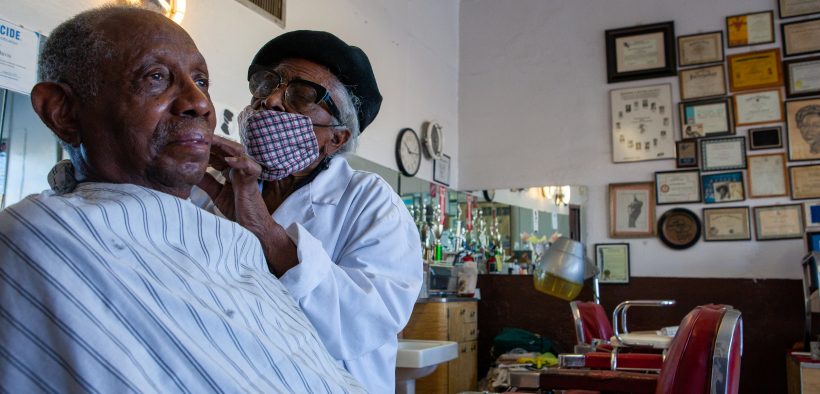Estine Davis has been cutting hair in El Paso for almost 70 years, most of it at her barber shop that is the last vestige of what was once a vibrant Black business district.
As she prepared to celebrate her 88th birthday in December, the woman known affectionately as Miss Estine told a reporter she has no plans to retire.
“As long as I make a living from it, I’m going to cut hair,” she said.
To celebrate Miss Estine, a group of friends organized a “Toot and Wave Car Parade” in her honor . The parade began at Shiloh Baptist Church, 3201 Frutas, then made its way to Estine Eastside Barber Shop at 104 N. Piedras.
Ron Stallworth, the author of the best-selling book “Black Klansman,” led the parade. Davis first cut his hair when he was a teenager.

Entering Estine Eastside Barber Shop is like stepping back in time. Four red barber chairs await customers, although Davis is the only one cutting hair. She’ll set up a television for customers waiting for their cut. A 1950s-era pay phone hangs on the wall.
“Her shop has been a rallying point over the years for people in the Black community,” Stallworth said. “She has customers from all over the country, people who have grown up with her, like I did, and left the city, went on with their careers. And they always come back whenever they have the opportunity.”
Making a life in El Paso
Davis was born in East Texas in 1932 and moved to El Paso when she was 6. Her mother died before the move and her father soon decided to move back to East Texas, leaving Davis and her siblings with family and friends.
Davis was the youngest child. Her family fudged her age so she could immediately go to Douglass School, the school for El Paso Black children during segregation.
“I was told my sister put her age up to 8 and you put your age up to 7. They finally found out, but they didn’t care,” Davis said.
After graduating from Douglass and turning 18, she went to barber school in Tyler, Texas. She returned to El Paso and began cutting hair at Fort Bliss.
What drew her to being a barber? “Nothing, baby. You understand, ain’t no job but money,” she said with a laugh.

Over the decades, Davis has cut the hair of men and women from a variety of racial and ethnic backgrounds. To her, hair is hair. But her focus has been providing cuts and styling for Black men in a city where African-American barbers are scarce.
She worked for a few years at Fort Bliss, charging $1.50 for a haircut at first. Davis went to work in the mid-1950s for a barber named Sam McKenzie on Piedras Street near Alameda Avenue, in the heart of a thriving commercial area for Black-owned businesses.
“We did real good then until me and him fell out. He called me something and I must have called him another something,” Davis said.
In 1959, she went to work at another barber shop on Piedras near Alameda, which was owned by her godfather, Roscoe Marlin. He and his wife had paid for Davis to go to barber school.
At some point in the mid-1960s — Davis isn’t sure of the exact year — Marlin turned the barber shop over to her.
“He sat right over there in that chair and said, I’m just tired of looking at hair and I’m just tired of hair. I’d rather go out there and cut some grass,” she said.
Running her own businesses
That was the beginning of Estine Eastside Barber Shop. The Piedras-Alameda neighborhood is in what is now Central El Paso, but in the 1950s and ‘60s it was considered to be on the Eastside of the city.
Standing barely 5 feet tall, Davis commanded respect and her barber shop became a hub of the Black community.

“You learned so much about what’s going on in the community,” said Dana Pittard, who grew up in El Paso and went on to an Army career that saw him rise to major general and command of Fort Bliss.
And she was never shy about sharing her thoughts.
“She would get personal and say, who you dating these days? And I might mention a name and because the African-American community is so small, it’s like, oh, I know her. She’s no good,” said Pittard, who now lives in Indiana.
Davis makes no apologies for her persona. “I always have been this way. I say what I feel like. If you don’t like it, I really don’t care.”
Davis also founded Estine Fashion Models and was a driving force for years for the Miss Black El Paso Pageant. Starting in 1982, she entered floats each year in the Sun Bowl Parade.
One area where Davis admits she didn’t have much success was marriage. She said that’s why she devoted so much time to her businesses and community activities.
“I was marrying so much and I sure did get sick of them,” she said with a laugh.
Davis said Judge Woodrow Bean II once told her, “If you get married again, I’m going to tell you right now, I’m going to put you in jail, not them.”
Davis raised two sons, Michael and William. Michael lives in Virginia and helped organize the birthday parade in honor of his mother. William passed away two years ago in El Paso.
Famous customers
For the first half of the 20th century, El Paso’s Black community was concentrated in a neighborhood just east of Downtown. The intersection of Piedras and Alameda served as a commercial hub for the Black community, featuring bars, restaurants, beauticians and barbers.
Davis grew up in that neighborhood. But by the time she took over her godfather’s barber shop in the mid-1960s, El Paso was changing. Schools had desegregated a decade earlier. The construction of Interstate 10 in the early 1960s bisected the city’s historic Black neighborhood, hastening its demise. A growing Black population, largely tied to Fort Bliss, began settling more in the East and Northeast parts of El Paso.
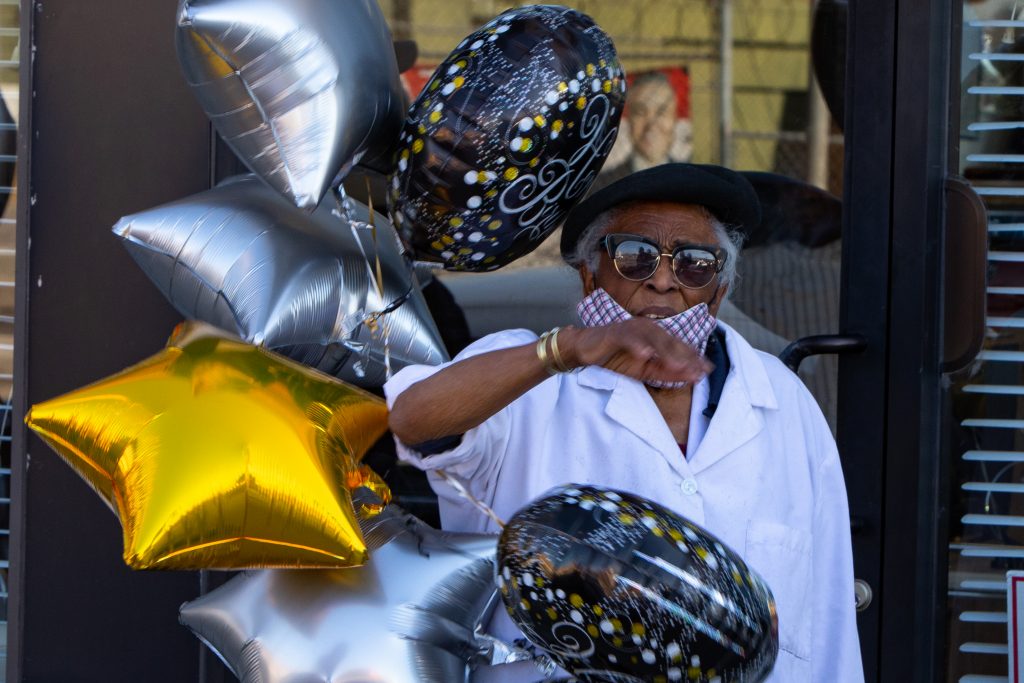
But Davis’ barber shop continued to be a gathering spot, even as other Black-owned businesses in the old neighborhood closed their doors in the 1970s and 1980s.
“Most of my friends who were African-American at Eastwood went to Estine’s. In fact, you would really see contemporaries from about five different high schools. It would be Eastwood, Bel Air, Burges, Andress, Austin primarily,” said Pittard, the retired Army general who went to high school in the mid-1970s.
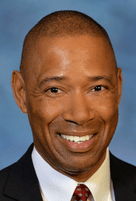
Davis cut the hair of several players on the 1966 Texas Western College national basketball champions. She did the same for entertainers like Little Richard and the Harlem Globetrotters when they came through town.
Davis also was the barber for numerous El Paso boys like Pittard and Stallworth who went on to great success in life — Greg Allen, now El Paso’s chief of police; Marc Carter, who became a judge in Houston; Nolan Richardson, who went on to be a Hall of Fame college basketball coach.
Pittard got his first haircut from Davis when he was 9. She continued to cut his hair until he graduated from Eastwood High School in 1977 and headed to the U.S. Military Academy at West Point.
Davis was his barber “through the whole stage of very short hair in fifth grade to having an afro. She used to have these things called blow-out kits,” Pittard recalled with a chuckle.
He said he always trusted Davis because ”she knows my hair.”
“In fact, when I was going to West Point it was like, well what’s going to happen Miss Davis, you’re not going to be up there. And she said, well, you won’t have anything to worry about because you won’t have any hair.”
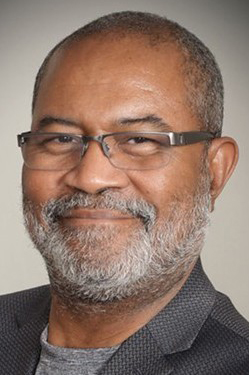
Stallworth began going to Davis’ barber shop as a teen in the late 1960s, leaving another barber after his mother agreed to let him pay an extra 25 cents for what he saw as a superior haircut. He was a regular customer until he graduated from Austin High School in 1971 and left El Paso for a 32-year law-enforcement career that included an undercover investigation of the Ku Klux Klan that led to his book and an Oscar-winning movie directed by Spike Lee.
“Whenever I paid a visit to El Paso over the years, I would always stop in and say hi to her and have her cut my hair,” Stallworth said.
He moved back to El Paso four years ago and brought his wife, Patsy, to the barber shop to meet Davis.
“I’m sitting in her chair, she’s cutting my hair, and I made a derogatory remark about a mutual acquaintance of ours. And next thing I felt on the back of my head was Estine’s hand slapping me. And I said, Miss Estine, I’m 63 years old. And she said, I don’t care, you’re still one of my babies and I don’t like you talking like that.”
The future
Davis drives her 2004 Lexus to work five days a week and charges $13 for a basic haircut. She’s active at Shiloh Baptist Church, though a bit miffed because COVID-19 has led the church to scale back activities. She gets together with friends, and sometimes surreptitiously checks in on a rival barber.
“I keep the shop open just to keep my health up. That’s what people got to learn. Money is good, but hell, if you’re in bad shape you can’t even spend it,” Davis said.
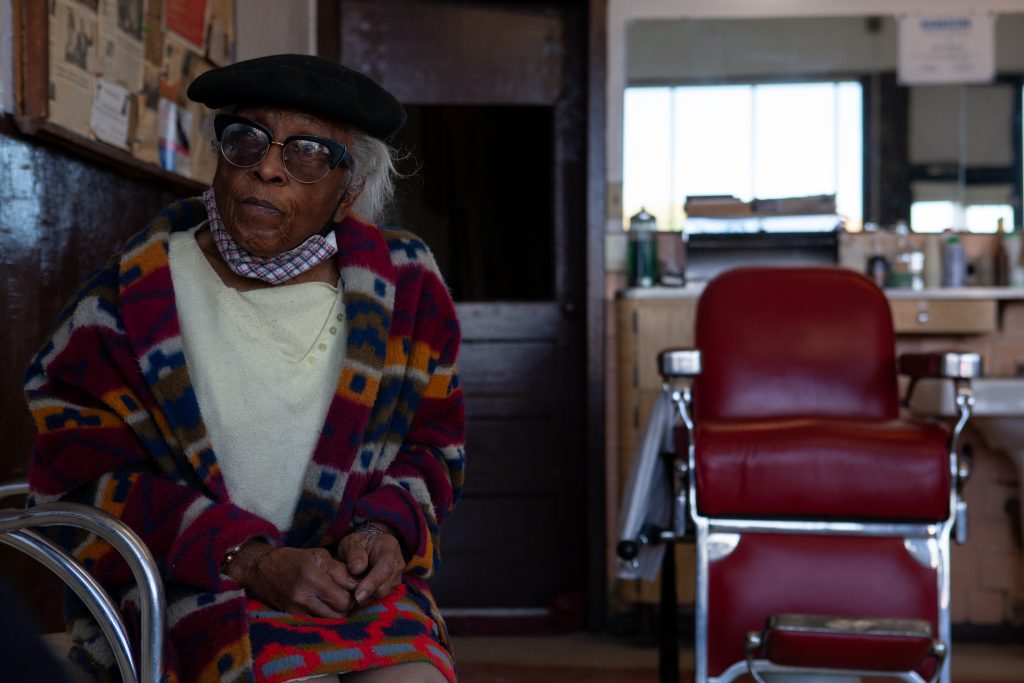
Her barber shop is the last remaining business from El Paso’s historic Black commercial district. COVID-19 has heavily impacted her business, as customers delay haircuts or forego them altogether.
Her son Michael has asked her to move to Virginia to be closer to him, but she has no interest in leaving El Paso’s desert climate.
“I’m an asthmatic patient and it won’t help me none. I love my son but I love my health,” she explained.
Davis isn’t one for regrets.
“I can say I laugh a lot of times. I can say I cry some times. And I can say all of it was fun, I guess.”
Cover photo: After celebrating her 88th birthday on Dec. 5, Estine Davis returns to cutting hair in her barber shop. (Corrie Boudreaux/El Paso Matters)
This article first appeared on El Paso Matters and is republished here under a Creative Commons license.

